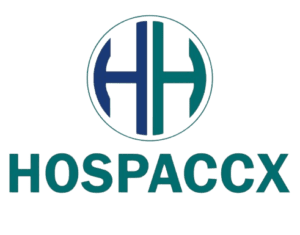Are you planning to build or restructure or venture into any healthcare venture in Nigeria? Looking for information about the major healthcare players in Government, Private diagnostic centers that are available in Nigeria? Are you looking to find out which city is best to venture in or what all facilities are available and what all should be planned? In this article Hospaccx Healthcare Consultancy has mapped all on major players in terms of medical facilities and healthcare scenario in Nigeria.
Below is the superficial and macro level survey if you need a refined market and financial feasibility or any other study related to healthcare is required you can contact Hospaccx Healthcare business consulting Pvt. ltd on info@hhbc.in or hospaccx.india@gmail.com Or you can visit our website on hospaccxconsulting.com
INTRODUCTION:
As an important element of national security, public health not only functions to provide adequate and timely medical care but can also trace, monitor, and control disease outbreak. The Nigerian health care had suffered several infectious disease outbreaks year after year. Hence, there is need to tackle the problem. Medical intelligence and surveillance represent a very useful component in the health care system and control diseases outbreak, bioattack, etc. There is increasing role of automated- based medical intelligence and surveillance systems, in addition to the traditional manual pattern of document retrieval in advanced medical setting such as those in western and European countries.
The Nigerian health care system is poorly developed. No adequate and functional surveillance systems are developed. To achieve success in health care in this modern era, a system well-grounded in routine surveillance and medical intelligence as the backbone of the health sector is necessary, besides adequate management couple with strong leadership principles.
Current Healthcare Scenario:
Topline Healthcare Statistics Nigeria
- Population in 2019 200 million
- Average life expectancy is 52 years
- Patient-to-doctor ratio 2500:1
- NCDs are estimated to account for 29% of all deaths
- Spending on healthcare to reach NGN 5,762 billion by 2021
- US$ 1 billion spent annually on outbound medical tourism
- <90% population living without health insurance
Health Expenditure:
According to a report by Fitch Solutions, healthcare expenditure in Nigeria is predicted to reach NGN 5,762.061 billion by 2021 growing at a CAGR of 8.35% Y.O.Y. This is up from an estimated NGN 5,318.061 billion in 2020. By 2021, healthcare spending is estimated to make up 2.94% of the country’s GDP. While the government is expected to spend NGN 1,477.77 billion by 2021, the private sector will spend NGN 4,284.469 billion in the same period. This is up from NGN 1,190.71 billion and NGN 3,709.120 billion respectively in 2019.
INVESTMENT OPPORTUNITIES:
It has been estimated that Nigerians spend about $1 billion on medical tourism per annum. Top medical tourist destinations include India, Europe, the United States, the Persian Gulf. There is obviously a ready market of Nigerians seeking high-quality medical care with the requisite purchasing power. Although there are over 130 pharmaceutical companies in Nigeria, only 9 are listed on the stock exchange. Of the total drug consumption in Nigeria, the indigenous pharmaceuticals companies are only able to meet about 45 percent of the demand for drugs. This provides an avenue for import substitution.
Investment opportunities include:
- Specialist hospitals,
- Diagnostic and Trauma Centers,
- Ambulance Services,
- Mobile Clinics
- Pharmaceutical manufacturing,
- Smallholder specialist clinics among others.
The nation’s healthcare is attracting foreign investors that are improving the outlook of the healthcare industry, which many describe as a growth market. Furthermore, there will be possibility of franchise arrangements with some global health care service providers, under which the indigenous company will be the sole local manufacturer of some globally renowned drugs and healthcare products. With a population of more than 180 million, there is a huge gap between healthcare needs and actual provisions, which presents huge opportunities for multinationals with extensive capacity for research and capital for investments.
Besides, the industry has witnessed many landmark changes in recent years, including a law that mandates compulsory health scheme for employees and a step-up in the anti-counterfeit and substandard drugs campaign.
Stakeholders in the healthcare sector and the capital market have agreed that there are immense opportunities in healthcare. At the quarterly sectoral dinner of the Nigerian Stock Exchange (NSE) for the healthcare sector, the Federal Government, NSE, capital market operators and chief executives of healthcare firms brainstormed on the ways the capital market can foster the development of the sector.
Leading Pharmaceutical Companies in Nigeria:
Several global pharmaceutical and healthcare firms are currently operating in Nigeria. Some of them include:
- Pfizer Global Pharmaceuticals
- Mega Life Sciences
- VitaMedics
- GlaxoSmthKline
- May & Baker
Some others are scouting for acquisitions and partnerships with Nigerian companies as part of global investment focus on the healthcare sector. Investment opportunities and partnerships include contract manufacturing and investment in new facilities by some health care services providers.
10 Reason to Invest in Nigeria’s Healthcare Sector:
- The country’s large and growing population
- A swelling middle class with the capability to pay for services
- Rising demand for specialty services
- An increase in the incidence of chronic and infectious diseases
- The increase in the rate of non-communicable diseases
- The government’s willingness to plan and partner with private providers
- Numerous investment opportunities in the near term will be in the SME sector
- Economic recovery and policy incentives should create long-term opportunities
- Policy and regulatory projects to expand the use of PPPs in healthcare
- Building and improving the sector’s physical assets
Conclusion:
The Nigerian healthcare market is large and diverse. Its value chain comprises of manufacturers, health service providers, medical insurance, retailers, distributors, health financing entities, and medical education providers. There is a need for investment in all these areas but there has been a concentration of investment in multispecialty hospitals, niche healthcare providers, standalone diagnostic facilities and Health Maintenance Organizations (HMOs). As most investors prefer the high financial returns of specialty hospitals and diagnostic facilities, primary healthcare in Nigeria has not seen high levels of investment. Investment in primary healthcare provision can create immense value for both providers and beneficiaries if it can leverage on a large enough population and an associated network of diagnostic capabilities and specialist input.





Related Team Members











